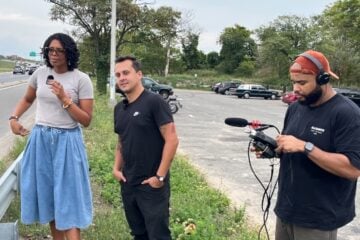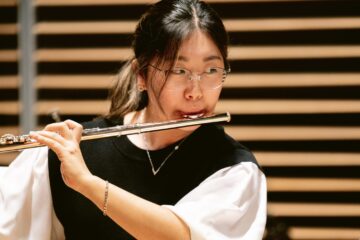PBS Digital Studios receives $5.5M for regional centers, science programming
PBS Digital Studios was awarded two grants to fund regional centers and research for science programming.
CPB gave PBSDS $3 million to establish three Regional Digital Centers of Innovation for new online content. Each regional center will partner with up to three PBS member stations to create up to 15 new digital series over the next two years. The first shows will be on YouTube, while others may appear on TikTok, Facebook and Instagram’s IGTV.
Producers who lead each series will be supported by Cecilia Loving, PBS’ new SVP of diversity, equity and inclusion. Loving will help lead content development, as well as oversee digital workshops “to ensure that the content produced is authentic and inclusive of all audiences,” according to the release.
The initiative was announced Tuesday during the Television Critics Association Summer Press Tour, where PBS announced additional commitments to boosting DEI in programming.
“With the support from CPB, we have a great opportunity to develop a digital-first programming strategy at the local level that will expand PBS’s production capacity and create a new pipeline of entertaining and engaging content from around the country,” said Sylvia Bugg, PBS chief programming executive, in a news release. “Additionally, through this collaboration, we are able to foster the skills of content creators across the PBS system, enabling us to serve younger and more diverse audiences through experimentation with new formats and platforms.”
“We are proud to support PBS Digital Studios and the critical work of local public media stations as they tell stories that highlight local and regional diversity,” said CPB President Pat Harrison.
PBS Terra to reach ‘new, diverse audiences’
PBSDS also announced that it received a $2.5 million grant to launch new STEM programs on its YouTube science-centric hub, PBS Terra.
The funding comes from the National Science Foundation’s Advancing Informal STEM Learning program. It will support an initiative to create short-form videos and conduct follow-up research “to better understand how and why these videos attract underrepresented groups,” according to a news release.
“Currently, YouTube’s most popular STEM creators are disproportionately white and male, and viewer data and PBS surveys suggest that Black and Hispanic viewers, as well as women, are underrepresented in audiences for STEM content online,” the release said. “With support from the NSF grant, PBS Digital Studios aims to remedy this by expanding PBS TERRA to new, diverse audiences and examining its impact.”
The University of Georgia, the University of Utah, the consultant firm Fly Sci Enterprise and PBSDS will co-lead audience research and test hypotheses on the effects of STEM videos featuring scientists and experts that are women, Black and Hispanic. An additional goal of the project is to measure audiences’ attitudes and engagement with science, as well as their perceptions of scientists.
“This project has great potential for broadening access to STEM learning by conducting research and using innovative production strategies to engage women as well as Black and Hispanic communities,” said Sandra Welch, program officer at the National Science Foundation. “It is an exciting new model for using digital media to broaden participation, inclusion and equity in STEM learning and careers.”





